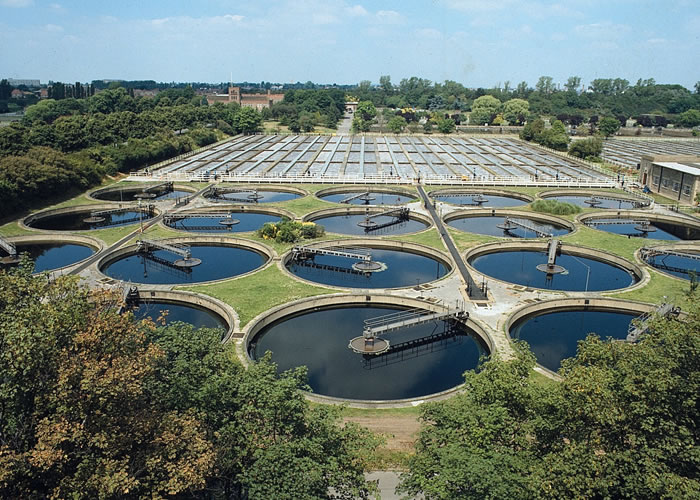Ofwat’s July 2024 draft determination increased the expectations on water companies whilst halving the price increases they sought in order to deliver those improvements. Intense negotiations are expected before Ofwat’s final determination in December.
However, the difficulties this creates for water companies may impact their pension schemes.
Recent ratings downgrades for Thames Water (Thames) caused them to breach their license conditions, triggering restrictions on their debt, increasing their risk of running out of money sooner than expected and possibly entering Special Administration.
Whilst Thames’ difficulties are among the more significant in the industry, they are not unique. Trustee boards of all water companies must ensure they fully understand their employer’s position and its potential impact on their scheme.
In my previous role as director of supervision at The Pensions Regulator (TPR), I was struck by the strength of conviction among pension trustees that, as a regulated utility provider, water companies were effectively government risk.
There was an assumption they would not be allowed to fail, or if they did, pension schemes would be looked after under the Special Administration Regime. Those assumptions could now be tested.
The financial structure used to set the income for water companies is complex. It is a balance of what Ofwat expects them to deliver in increased investment, costs it considers reasonable to pass on to consumers and the return on capital allowed for the debt and equity used to do this.
Ofwat’s draft determination made this calculation significantly less favourable for water companies and their investors, responding to negative public opinion of the industry, and, in Thames’ case, a financial and provision of service plan they view as “inadequate”.
Thames has since been subject to multiple credit rating downgrades and fines of 144m from Ofwat since June in relation to failure to manage sewage works and an improper shareholder dividend payment.
Ofwat’s approach to the draft determination will impact Thames’ pension schemes. The company has 3 DB schemes, one with a deficit of £152m (as at 31/3/22), and no agreed recovery plan.
Ofwat ruled Thames’ proposal to charge customers £156.6m to plug the pension shortfall lacked “sufficient and convincing evidence that it is appropriate for customers to pay these costs”.
Thames has been blocked from funding pension deficits with customer money since 2023, so the responsibility has fallen “wholly to management and shareholders”.
With a sponsor whose profitability and shareholder returns are far tighter than proposed, and existing shareholders not willing to invest the equity the company needs, pension trustees will be working hard to find a solution.
Pension trustees of all water company schemes must be clear where the money for their scheme will come from.
The future of Thames and potentially other water companies is in doubt. Thames has been clear that without new debt or equity, they will run out of cash and enter a debt standstill in December.
With 90 lenders to organise, the company’s business plan not clear until December and an Independent Monitor appointed to management, companies will find managing through to a solvent outcome challenging. Trustees will have to work hard to get proper engagement.
Whilst Ofwat’s states, “our draft decision will enable Thames Water to attract the borrowing and equity it needs to deliver a step up in performance” Thames’ shareholders believe the business is now “uninvestable.”
Negotiations between now and December will reveal whether this gap can be bridged.
If not, Thames faces the risk of Special Administration to ensure vital services are maintained whilst debt write-downs will reset its balance sheet and then be passed to a new owner willing to invest sufficient new equity.
Thames’ 80 per cent leverage compared to Ofwat’s 60 per cent target implies Special Administration (overseen by the UK Government Investments team) or any alternative restructuring, may need to write off £4bn of Thames’ £16bn debt before new borrowing needs.
In this situation, trustees need to make their case very strongly to avoid the risk of impacts on the scheme including potential loss of the employer.
The question for pension trustees is whether Ofwat and UKGI would consider the business retaining the scheme important enough under Special Administration. Ofwat has said Thames may be split, adding further complexity to the trustees’ position.
While Thames’ case is the most extreme, the issues are faced by trustees of other water company DB schemes will need to ensure they understand how their employers’ ability to support them has been affected by the changing regulatory environment and Ofwat’s draft determination.
Latest News
-
Govt urged to prioritise pension policy stability in Spring Statement
-
Just Group underlying operating profit falls by 39%
-
Employers warned modest pension defaults risk worsening adequacy gap
-
Aegon updates modelling tool to help members benchmark retirement needs
-
News in brief - 27 February 2026
-
PPF levy to remain at zero for 2026/27
Private markets – a growing presence within UK DC
Laura Blows discusses the role of private market investment within DC schemes with Aviva Director of Investments, Maiyuresh Rajah
The DB pension landscape
Pensions Age speaks to BlackRock managing director and head of its DB relationship management team, Andrew Reid, about the DB pensions landscape
Podcast: From pension pot to flexible income for life

Podcast: Who matters most in pensions?

In the latest Pensions Age podcast, Francesca Fabrizi speaks to Capita Pension Solutions global practice leader & chief revenue officer, Stuart Heatley, about who matters most in pensions and how to best meet their needs
© 2019 Perspective Publishing Privacy & Cookies











Recent Stories